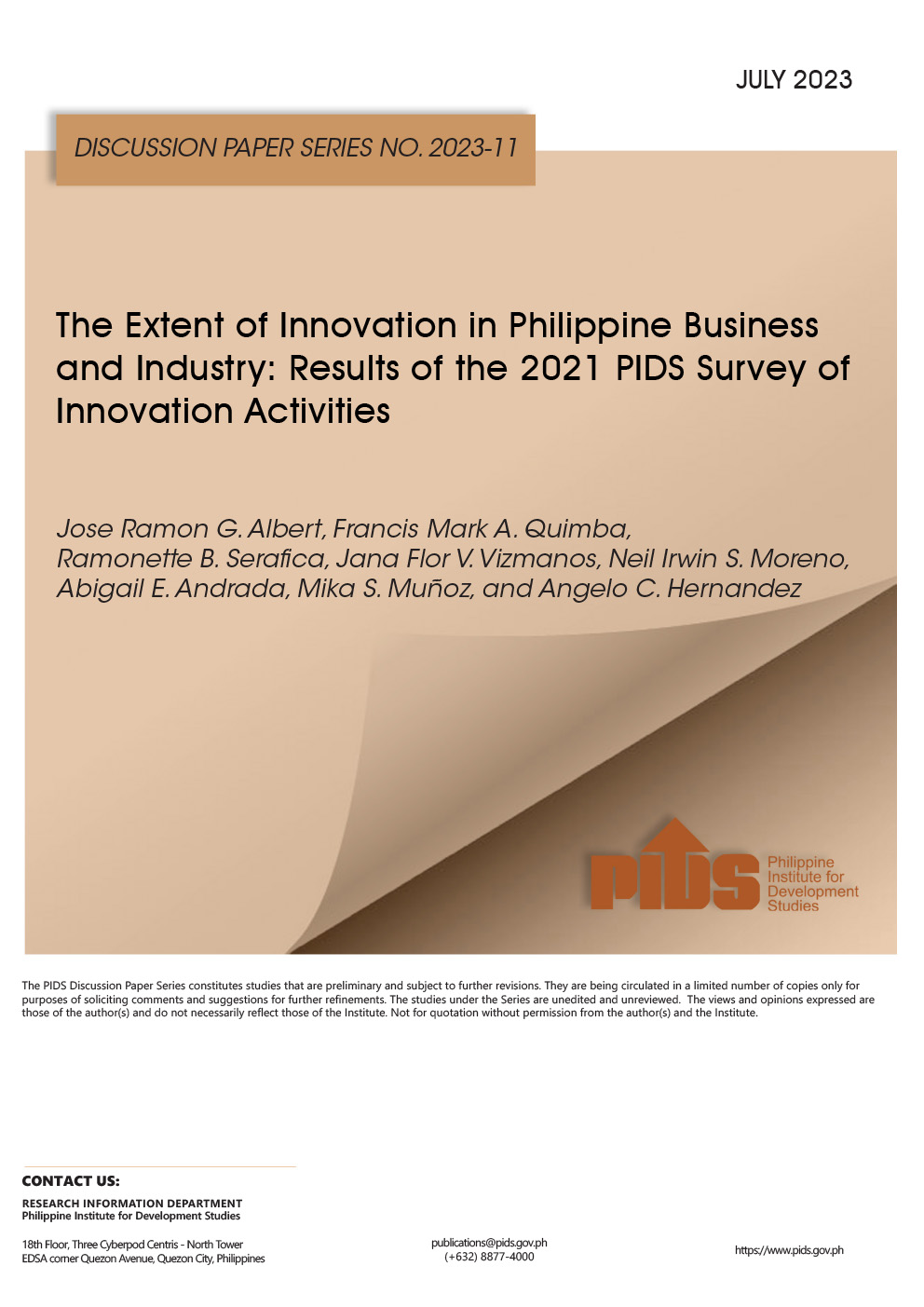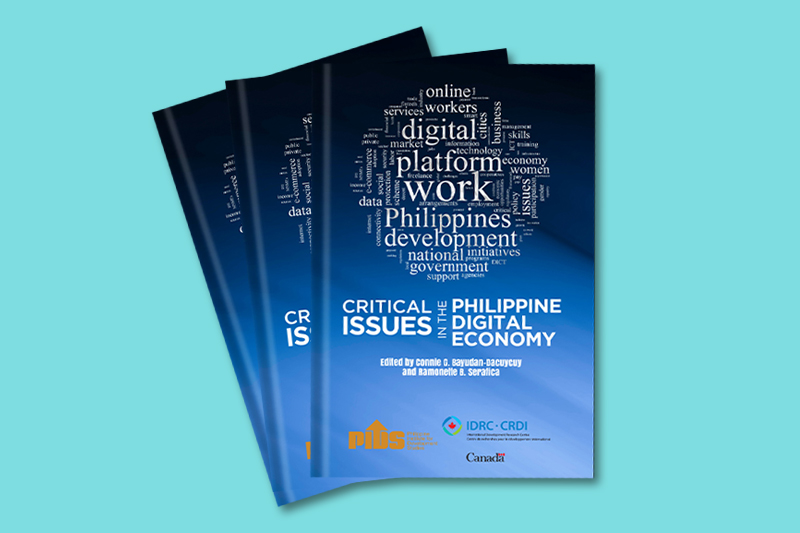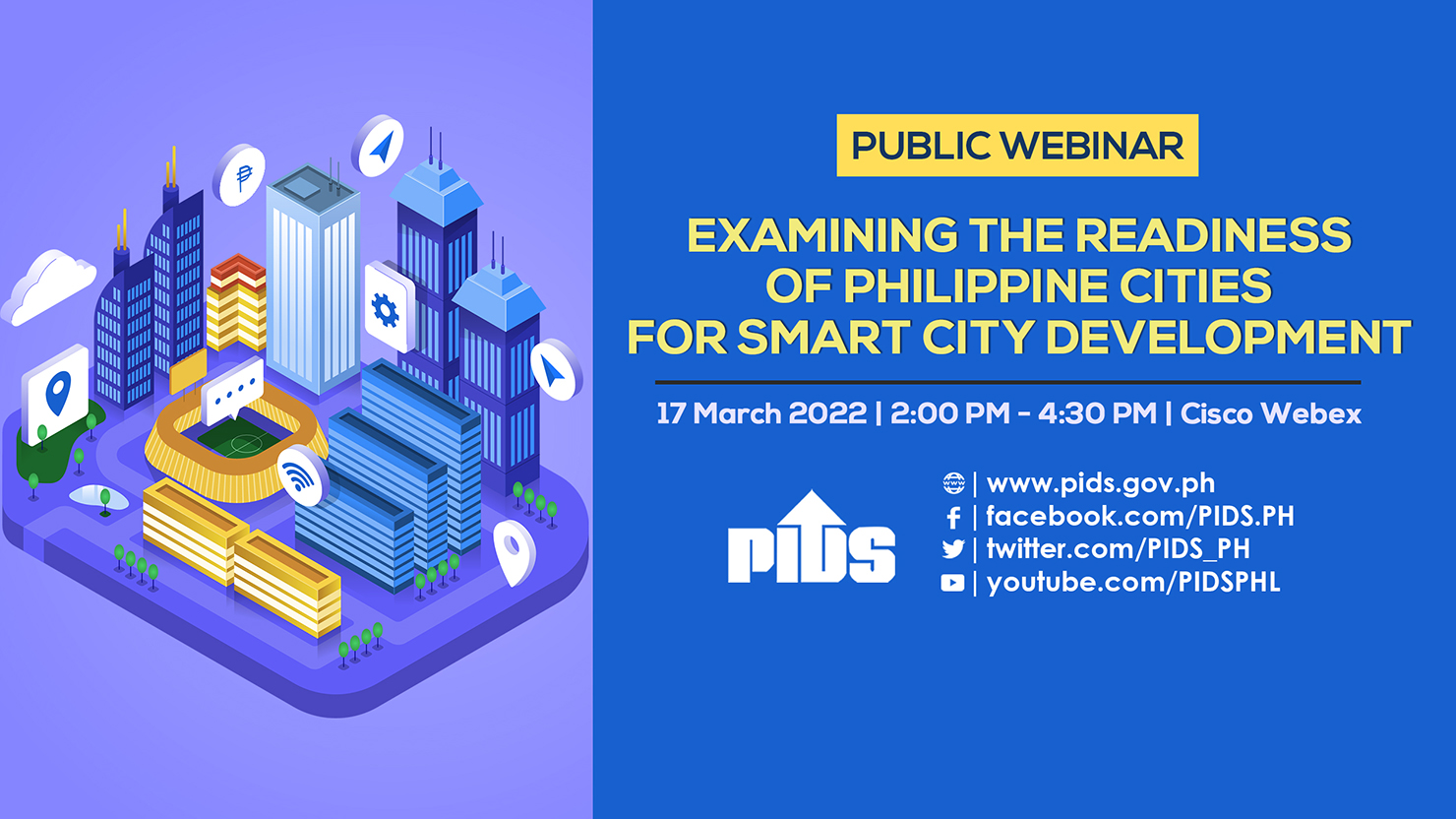
Smart city development is recognized as a potential solution to the Philippines’ urbanization issues. However, much still needs to be done at the national and local levels to harness its benefits.
This was according to a recent study of state think tank Philippine Institute for Development Studies (PIDS) authored by PIDS Supervising Research Specialist Tatum Ramos, PIDS Senior Research Specialist Pauline Joy Lorenzo, PIDS Research Specialist Jenica Ancheta, and PIDS Vice President Marife Ballesteros.
The study, which examined whether Philippine cities are prepared for smart city development, looked into the experiences of Cauayan City, Tuguegarao City, San Fernando City, Malabon City, Mandaue City, Davao City, and Tagum City.
According to the authors, the Philippines “has started to tread the path towards building smart cities and some Philippine cities [have already exhibited] preparedness for smart city development”. They noted that local government units (LGUs) are motivated by the expected outcomes of smart city initiatives, which include “high quality of life, competitive economy, and sustainable environment”.
“There is also an emphasis on LGUs’ desire to address the needs of people and ongoing urban challenges such as public safety, transportation, and those brought about by the COVID-19 pandemic and disasters,” the authors explained.
Currently, smart city initiatives have already been implemented in some cities, particularly in the infrastructure, data, and service phases. These cities include those in Metro Manila, Metro Clark, Metro Cebu, and Metro Davao, as well as other highly urbanized cities.
The study also found that ‘enablers’ for smart city development already exist in the country. These include partnerships with the national government, as well as the academe, civil society, and the private sector, compliance with smart city-related policies and guidelines, compliance with certifications requiring LGUs to apply smart city initiatives in their governance, presence of information and communications technology (ICT) department or staff, presence of smart city champions at the local level, and access to technology.
Despite these efforts, the authors said that the country’s path to developing smart cities comes with challenges. Among the most cited issues noted by the study were operational costs and lack of interoperability.
In terms of funding, the authors found that LGUs faced challenges in setting up the necessary ICT infrastructure and systems needed to operate smart city initiatives.
“While majority of the interviewed LGUs have existing basic ICT infrastructure, the fast-paced growth of the technology industry requires these LGUs to [continuously] upgrade their systems which can be very costly,” the authors explained, adding that this problem has forced LGUs to rely heavily on partnerships.
Meanwhile, the lack of systems interoperability has made it difficult for LGUs to collate data, especially in times of disasters and public health emergencies.
Another constant issue raised by the interviewed LGUs is the public uptake of smart city initiatives, particularly the ability to adapt to technological innovations. The lack of public trust in data use and storage was also mentioned.
Other issues discussed were the digital divide, the lack of policies and standards in implementing smart city initiatives, and change in administration.
Given these challenges, the study emphasized the important role of national government agencies in addressing these issues.
For example, the Department of Science and Technology (DOST), through the Philippine Council for Industry, Energy, and Emerging Technology Research and Development, can enhance the DOST Framework for Smart Sustainable Communities and Cities.
The Department of the Interior and Local Government can “promote and monitor the adoption of the framework and gauge smart city development among Philippine cities” and “incentivize cities to adopt the smart city concept”. It can also “mandate LGUs to provide data involving their projects on a platform easily [accessed] by their constituents”.
Meanwhile, the Department of Information and Communications Technology and the National Privacy Commission can issue guidelines and standards on developing data repositories and data protection.
Lastly, the authors underscored the need for risk mitigation strategies in the framework of smart cities. To do this, the Public-Private Partnership Center can “provide guidance in the conduct of feasibility studies and cost-benefit analyses”. ###
This study is based on the PIDS discussion paper “Readiness of Philippine Cities to Smart City Development”.
This was according to a recent study of state think tank Philippine Institute for Development Studies (PIDS) authored by PIDS Supervising Research Specialist Tatum Ramos, PIDS Senior Research Specialist Pauline Joy Lorenzo, PIDS Research Specialist Jenica Ancheta, and PIDS Vice President Marife Ballesteros.
The study, which examined whether Philippine cities are prepared for smart city development, looked into the experiences of Cauayan City, Tuguegarao City, San Fernando City, Malabon City, Mandaue City, Davao City, and Tagum City.
According to the authors, the Philippines “has started to tread the path towards building smart cities and some Philippine cities [have already exhibited] preparedness for smart city development”. They noted that local government units (LGUs) are motivated by the expected outcomes of smart city initiatives, which include “high quality of life, competitive economy, and sustainable environment”.
“There is also an emphasis on LGUs’ desire to address the needs of people and ongoing urban challenges such as public safety, transportation, and those brought about by the COVID-19 pandemic and disasters,” the authors explained.
Currently, smart city initiatives have already been implemented in some cities, particularly in the infrastructure, data, and service phases. These cities include those in Metro Manila, Metro Clark, Metro Cebu, and Metro Davao, as well as other highly urbanized cities.
The study also found that ‘enablers’ for smart city development already exist in the country. These include partnerships with the national government, as well as the academe, civil society, and the private sector, compliance with smart city-related policies and guidelines, compliance with certifications requiring LGUs to apply smart city initiatives in their governance, presence of information and communications technology (ICT) department or staff, presence of smart city champions at the local level, and access to technology.
Despite these efforts, the authors said that the country’s path to developing smart cities comes with challenges. Among the most cited issues noted by the study were operational costs and lack of interoperability.
In terms of funding, the authors found that LGUs faced challenges in setting up the necessary ICT infrastructure and systems needed to operate smart city initiatives.
“While majority of the interviewed LGUs have existing basic ICT infrastructure, the fast-paced growth of the technology industry requires these LGUs to [continuously] upgrade their systems which can be very costly,” the authors explained, adding that this problem has forced LGUs to rely heavily on partnerships.
Meanwhile, the lack of systems interoperability has made it difficult for LGUs to collate data, especially in times of disasters and public health emergencies.
Another constant issue raised by the interviewed LGUs is the public uptake of smart city initiatives, particularly the ability to adapt to technological innovations. The lack of public trust in data use and storage was also mentioned.
Other issues discussed were the digital divide, the lack of policies and standards in implementing smart city initiatives, and change in administration.
Given these challenges, the study emphasized the important role of national government agencies in addressing these issues.
For example, the Department of Science and Technology (DOST), through the Philippine Council for Industry, Energy, and Emerging Technology Research and Development, can enhance the DOST Framework for Smart Sustainable Communities and Cities.
The Department of the Interior and Local Government can “promote and monitor the adoption of the framework and gauge smart city development among Philippine cities” and “incentivize cities to adopt the smart city concept”. It can also “mandate LGUs to provide data involving their projects on a platform easily [accessed] by their constituents”.
Meanwhile, the Department of Information and Communications Technology and the National Privacy Commission can issue guidelines and standards on developing data repositories and data protection.
Lastly, the authors underscored the need for risk mitigation strategies in the framework of smart cities. To do this, the Public-Private Partnership Center can “provide guidance in the conduct of feasibility studies and cost-benefit analyses”. ###
This study is based on the PIDS discussion paper “Readiness of Philippine Cities to Smart City Development”.












